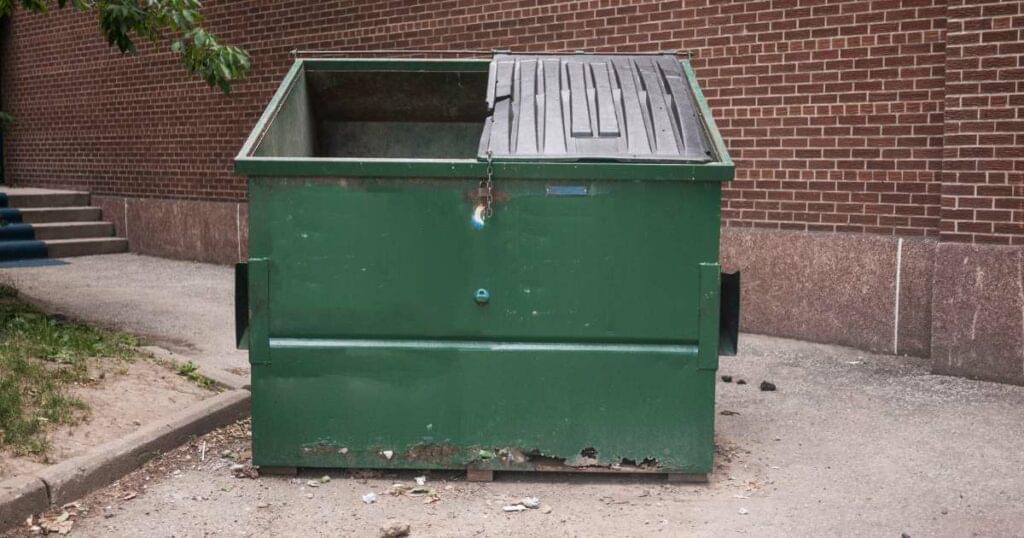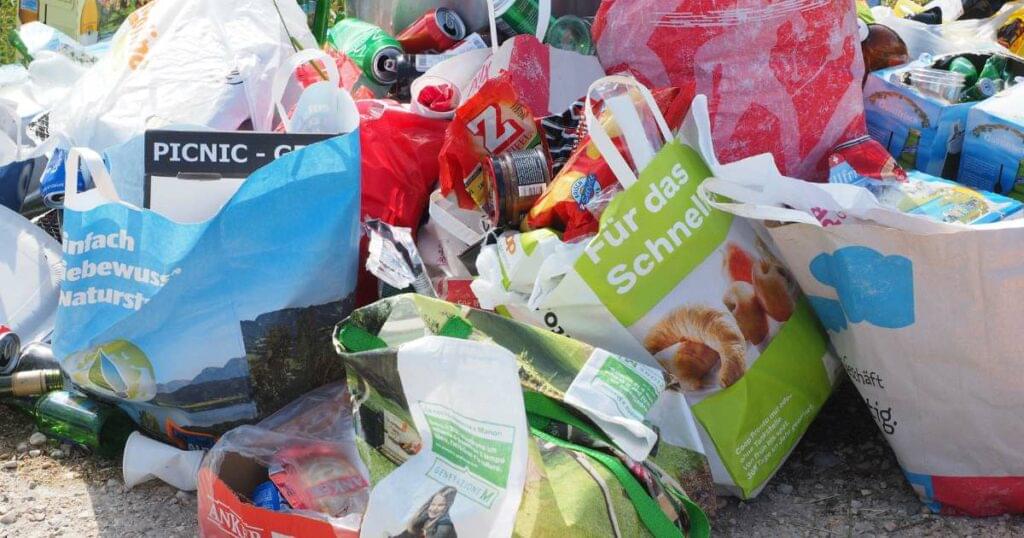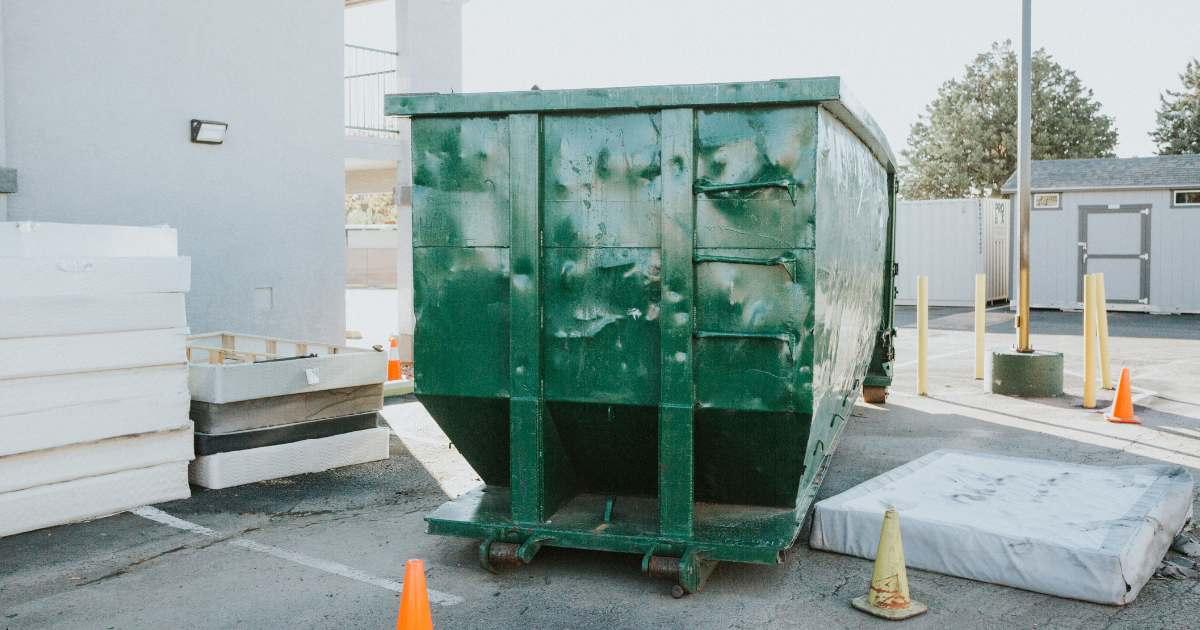Renting a dumpster for a week can be an invaluable solution when tackling large-scale projects that generate significant amounts of waste.
Whether you’re renovating your home, clearing out a property, or managing construction debris, a dumpster provides a convenient and efficient way to dispose of materials.
However, understanding the costs and considerations involved is essential to budgeting effectively and ensuring a smooth waste management process.
In this comprehensive guide, we’ll explore the factors that influence the cost of renting a dumpster, including dumpster sizes, rental durations, location-specific factors, types of waste, additional fees, and practical tips for maximizing cost-effectiveness.
By the end, you’ll have a clear understanding of how to choose the right dumpster for your needs and navigate the rental process confidently.
Dumpster Size
Choosing the right dumpster size is crucial to efficiently manage your waste without overpaying. Here’s a more detailed breakdown of common dumpster sizes:

10-yard dumpster: Holds approximately 10 cubic yards of waste, equivalent to about 3 pickup truck loads. Ideal for small projects like a basement or attic cleanout, small remodeling jobs, or disposing of yard debris.
20-yard dumpster: Holds about 20 cubic yards of waste, roughly 6 pickup truck loads. Suitable for medium-sized projects such as carpet or flooring removal from a large home, garage cleanouts, or medium-sized renovation projects.
30-yard dumpster: Accommodates around 30 cubic yards of waste, equivalent to about 9 pickup truck loads. Best for larger projects like major home renovations, large-scale cleanouts, or commercial construction debris.
40-yard dumpster: Holds approximately 40 cubic yards of waste, about 12 pickup truck loads. Designed for the largest projects, including commercial building cleanouts, extensive demolition projects, or major construction.
Rental Duration
Dumpster rental periods typically range from 3 to 7 days for the initial rental period, with the option to extend for an additional fee per day. Some companies may offer longer rental periods if needed, accommodating ongoing projects or delays in waste removal.
Discover how long you can keep a dumpster rental for flexible project planning.
Location Factors
Location plays a significant role in dumpster rental costs due to varying operational costs and local regulations:
Urban vs. Rural Areas: Urban areas generally have higher rental costs due to higher demand, transportation costs, and regulatory compliance. Rural areas typically offer lower rental rates due to lower operational expenses and less demand.
Local Regulations: Some municipalities may have specific requirements or permit fees for placing dumpsters on public property, such as streets or sidewalks. Check with local authorities to ensure compliance and avoid unexpected fees, or explore what permits are required for dumpster rentals for additional clarity.
Types of Waste and Disposal Costs
Dumpster rental costs can vary based on the type of waste being disposed of:

General Household Waste: Includes common household items, furniture, appliances, and non-hazardous debris. Typically the least expensive to dispose of due to standard disposal methods.
Construction Debris: Materials such as drywall, lumber, roofing shingles, and concrete require specialized disposal methods and may incur higher disposal costs. Recycling efforts for construction debris can also impact pricing.
Heavy Materials: Dense materials like concrete, asphalt, dirt, and brick may exceed weight limits or require separate disposal, potentially resulting in additional fees based on weight or volume.
Hazardous Materials: Prohibited from standard dumpsters due to safety and environmental regulations. Hazardous waste, such as paint, chemicals, batteries, and certain electronics, requires specialized disposal services and should never be placed in a standard dumpster.
Not all items are allowed in a dumpster. Understand what can go in a dumpster rental to avoid fines and ensure compliance.
Additional Fees and Charges
In addition to the base rental cost, be aware of potential extra charges:
Delivery and Pickup Fees: Typically included in the rental price but can vary based on distance from the rental company’s location or specific delivery requirements (e.g., narrow access points).
Overweight Fees: If the dumpster exceeds its weight limit, additional charges may apply per ton of excess weight. Be mindful of weight restrictions and distribute heavy materials evenly to avoid overweight fees.
Permit Fees: Required for placing dumpsters on public property, such as streets or sidewalks. Permit costs vary by location and may be necessary to secure in advance from local authorities.
Taxes and Environmental Fees: Depending on local regulations and company policies, sales tax, environmental fees, or landfill surcharges may apply. Be sure to confirm these charges when requesting quotes or making your reservation.
Avoid surprises by reviewing hidden fees in dumpster rentals before signing your contract.
Tips for Cost-Effective Dumpster Rental
Plan Ahead: Reserve your dumpster rental well in advance, especially during peak seasons or busy construction periods, to secure availability and potentially negotiate better rates.
Bundle Services: Many rental companies provide discounts when you combine multiple services, like dumpster rentals with junk removal or recycling. Ask about package deals to reduce your overall expenses.
Avoid Contamination and Prohibited Items: Understand what items are prohibited from disposal in standard dumpsters (e.g., hazardous materials, certain electronics) to avoid fines, delays, or additional charges.
Review Rental Terms: Carefully review the rental agreement for terms and conditions, including rental periods, fees, and allowable waste types. Make sure you ask about anything you’re unsure of before you sign the contract.
Check out these dumpster rental tips for more cost-effective strategies.
Frequently Asked Questions
How much does it cost to rent a dumpster for a week?
The cost varies based on factors like dumpster size, location, type of waste, and additional fees. On average, prices can range from $200 to $800 or more for a week-long rental.
What size dumpster do I need for my project?
Choose a dumpster size based on the scale of your project. A 10-yard dumpster is suitable for small cleanouts, while a 40-yard dumpster is ideal for large-scale renovations or commercial projects.
Can I extend the rental period if needed?
Yes, most dumpster rental companies offer extensions for an additional fee per day. It’s essential to confirm this option when booking your rental. Learn how to extend the duration of your dumpster rental here.
Are there items that cannot be disposed of in a dumpster?
Yes, certain items like hazardous materials (e.g., chemicals, batteries), electronics, and appliances with refrigerants typically require special disposal methods. Check with your rental company for specific guidelines.
What additional fees should I be aware of?
Watch out for extra charges such as delivery and pickup fees, overweight fees if you exceed weight limits, permit fees for placing dumpsters on public property, and taxes or environmental fees.
Conclusion
Renting a dumpster for a week provides a practical solution for managing large volumes of waste during home renovations, cleanouts, or construction projects.
By considering factors such as dumpster size, rental duration, location-specific costs, and types of waste, you can effectively budget and streamline your waste disposal process. For more insights, check out how dumpster rental costs are calculated weekly.
Whether you’re a homeowner, contractor, or business owner, understanding the nuances of dumpster rental ensures a smoother experience and contributes to the success of your project.
Make informed choices, plan ahead, and utilize cost-saving strategies to maximize the benefits of your dumpster rental experience.
